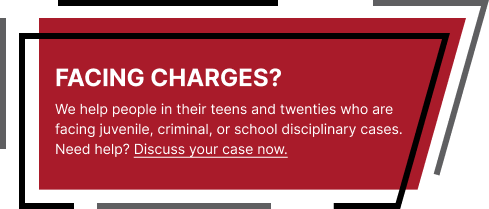
Many criminal and juvenile courts in Georgia impose no contact orders on individuals in certain situations. Typically, these are imposed when a person is charged with or convicted of certain offenses. Sometimes they are imposed because a court believes it is necessary to protect a person. Other times a no contact order is put in place because a court is worried about the individual getting in to more trouble if they continue to have contact with the same people. The most common types of cases that we see no contact orders in are allegations of family violence. Click here for more information specifically related to family violence cases.
Whenever a client of ours has a no contact order, we believe it is important for them to understand:
A no contact order means no contact whatsoever, which includes:
We want to protect our clients so that they don’t go back to jail for violating a no contact order. Sometimes people think that, “Well, if the other person initiated contact, it’s okay.” That does not mean it’s okay.
If you’re the one under the no contact order, that means that you’re going to be the one who gets in trouble for violating that no contact order.
One big mistake people make is having contact through third-parties. No contact through third-parities means that you can’t tell a someone else to tell the person something on your behalf. For example, you can’t ask a friend to tell the person something on your behalf. If you do this, it is still contact.
The proactical advise for what to do to avoid violating a no contact provisions is to make sure you have no contact whatsoever. Especially, in the ways listed above. Here are some ways to handle situations where someone who you have a no contact order against tries to have contact with you:
Violating a no contact order in any of these ways is not worth the issues that they can create.
What happens depends on how you are under a these conditions.
If you are out on bond with a no contact condition, this can mean:
If you are under sentence and violate a no contact provision, this can mean:
Either of these scenarios can result in being sent back to jail with no bond and being sentenced to additional jail time.
If you are under conditions of a pre-trial diversion program or some other pre-trial process, a violation can mean that you lose the opportunity to get whatever benefit you are supposed to get at the end of that pretrial diversion program.
If you’re dealing with a case that has a no contact provision, we can help you:
For help with a case involving a no contact order, contact us to learn how we can help.
Ghanouni Teen & Young Adult Defense Firm 691 John Wesley Dobbs Ave NE unit 225, Atlanta, GA 30312
Ghanouni Teen & Young Adult Defense Firm 2765 S Main St Suite C-2, Kennesaw, GA 30144
Ghanouni Teen & Young Adult Defense Firm 3826 Highlands Parkway SE, Smyrna, GA 30082
Ghanouni Teen & Young Adult Defense Firm 3227 S. Cherokee Lane, Suite 1360, Woodstock, GA 30188